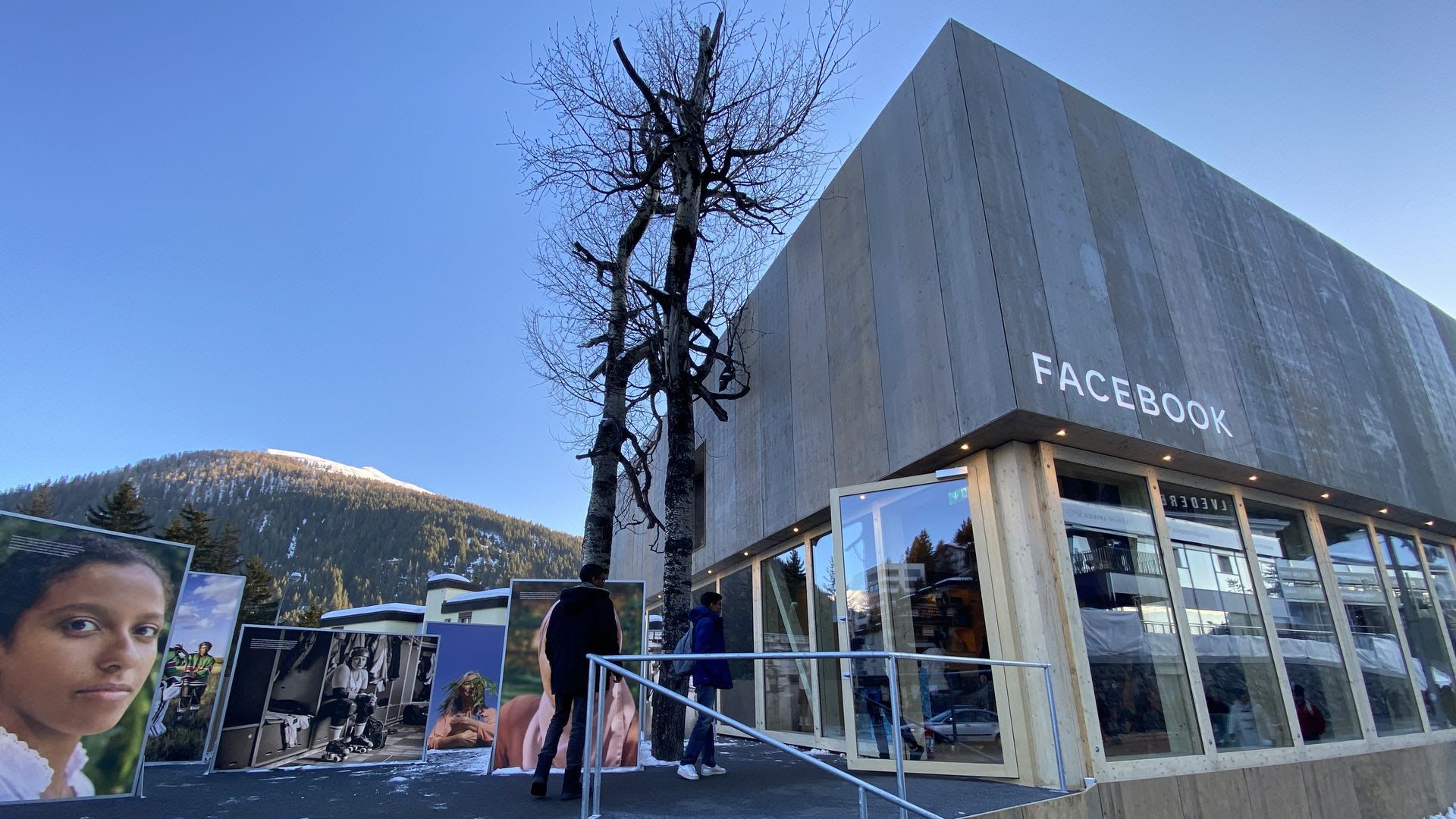How Big Tech used Davos in 2020
Add Axios as your preferred source to
see more of our stories on Google.

Facebook's pop-up location last week at the World Economic Forum in Davos. Photo: Ina Fried/Axios
While tech leaders at the World Economic Forum in Davos, Switzerland, had U.S.-China tensions top of mind, they also came looking to push their perspectives on climate change, antitrust and regulation of artificial intelligence.
Why it matters: Whereas once tech leaders were given a free pass (literally and figuratively) as the young darlings of Davos, they are now established leaders with heightened roles — and sharper scrutiny.
Climate concerns were front and center for Microsoft, which last week announced its plan to be carbon-negative by 2030, as well as Salesforce.
- Salesforce CEO Marc Benioff was pushing the World Economic Forum's 1 Trillion Trees initiative, and even managed to get the Trump Administration committed.
Driving the news: How artificial intelligence should be regulated was also a big topic in Davos, though companies' agendas varied.
- IBM called for "targeted regulation" of AI. CEO Ginni Rometty was quick to point out that the company wants to see legislation focused on how specific technologies are used, rather than blanket bans, like Europe is considering for public use of facial recognition.
- Google issued a broader call for regulation, including support for a temporary ban on facial recognition.
- While other companies sought to make nice with critics, Palantir CEO Alex Karp vigorously defended his company's work with the U.S. government — including immigration agencies — in an interview with CNBC.
Meanwhile: Those were just the public pronouncements. Tech leaders spent much of Davos behind closed doors, meeting with top officials from around the world.
- About three dozen of the tech leaders met with President Trump on Wednesday, though the discussion focused largely on the friendly turf of workforce training, with Apple's Tim Cook and IBM's Rometty delivering remarks.
- Tech leaders also met privately with top officials from Europe, which is seen as taking the lead on regulation.
And then there were all the pop-ups.
- The street outside the Congress Centre, known as the Promenade, was taken over by tech companies, who paid to commandeer the town's shops for the week in an effort to seem warm and fuzzy.
- That was good news if you wanted branded lip balm or free food, but bad news if you wanted to see any remnants of the cute ski town.
- Facebook threw its storefront open to highlight its platform security work, share a host of feel-good stories and demo its Oculus VR systems. Microsoft was demoing Hololens and serving up a yummy Thai curry. Surprisingly, Google's pop-up was open only to those with an appointment.
Go deeper:
